Movies about the realities of depression aren’t usually popular or profitable. As a result, there aren’t many that probe the condition deeply and honestly. The five films in this post are the best I’ve seen for the realism and dramatic power of their stories and the excellence of acting and production. There are many more good movies I’ll write about, but these come to mind first.
Here are several additional posts on movies:
Sylvia
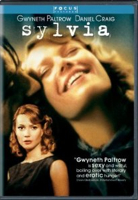 Sylvia
Sylvia. Gwyneth Paltrow stars as Sylvia Plath in this story of her troubled marriage to fellow poet Ted Hughes, their separation and her suicide.
The title image of Plath’s novel, The Bell Jar, is the glass-like enclosure of depression that suffocates and seals her off from living. This image seems to guide the film, as Sylvia sinks deeper and deeper into emotional isolation and emptiness, especially after Hughes (Daniel Craig) leaves her for another woman.
She goes through the motions of living, despite a surge of creativity during which she writes her greatest poetry. As if trying to strike a spark of life, she suggests having an affair to a close friend but looks blank and half-present while doing it. When he tells her that an affair is impossible, he awkwardly refers to his own suicide attempt in vague terms. But suicide is the one thing that stirs her interest. When she hears his story, her response is a chilling single word: “How?” It’s only the method of dying that concerns her.
Plath died when she was only 30, and the film is a fairly accurate version of a tragic story. It’s a powerful portrayal of the way the illness can destroy even the most promising lives.
Helen
 Helen
Helen is the most accurate and moving portrayal of depression and its impact that you’re ever likely to see in a dramatic film. If you’ve been struggling with depression, you’ll recognize the truth in every scene – a viewing experience I often found hard to take but ultimately healing.
Helen (Ashley Judd), a brilliant music professor and pianist, slowly feels the illness taking over and tries to fight back. In a succession of torturing scenes, she tries to remain intimate with her husband, David, but recoils at his touch. She wants to hold onto her 13-year old daughter, but her repeated breakdowns frighten the girl away. She is determined to return to teaching, but in front of her class she can hardly speak. The students can’t stand it and walk out.
She keeps getting worse, tries to kill herself several times and can hardly say a word to anyone. There is one person, however, she can turn to, Mathilda, a gifted student of hers who is coming out of her own severe depression. The film centers on the relationship between these two. Mathilda offers the kind of support that can only come from someone who has shared this agony.The story follows Helen’s painful and halting recovery but also brings out the terrible cost not only to her but to those who love her.
The film’s focus is its careful depiction of the illness itself. Depression is the relentless, invisible force driving everyone in every scene. It’s a disaster that befalls a group of people, and we watch their struggle to comprehend it and figure out what to do. The film would be especially helpful for anyone who is living with a depressed person and trying to understand what they’re going through.
Prozac Nation
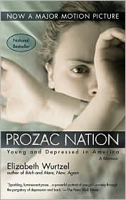 Prozac Nation
Prozac Nation. This adaptation of Elizabeth Wurtzel’s memoir
of the same name brings out the angry side of depression as well as the flat-on-your-back despair. The story portrays Elizabeth (Christina Ricci) as a confused and anxious teenager starting her college years at Harvard. She’s already published some articles and early on attracts the attention of an editor at Rolling Stone. But she remains detached from any close emotional connection.
Her means of isolating herself, however, is not passive withdrawal and silence. Instead, she finds friends, attracts boyfriends and works hard at her writing, only to undo everything. She lashes out viciously at each person who gets close to her, driving them away with one angry outburst after another until they can’t take anymore.
She knows that what she’s doing is the opposite of what she wants, yet she can’t stop. There are episodes of deep depression when she’s in a trance-like state, and her writing slows down so much that she can’t meet her magazine commitments, much less finish her class work. She gets into therapy with a frank but compassionate psychiatrist who can help her reconnect with her real self for brief periods. Prozac becomes part of her treatment just as its use is taking off with the American public, and the medication gives her some relief.
There’s no final resolution or end to her depression, but she does have breakthrough moments with her mother (Jessica Lange). As portrayed in this movie version, Wurtzel’s need is to struggle through relationships to reach a few moments of honest and loving connection. It’s the stormy side of depression, and this film captures it well with an excellent cast.
The Hours
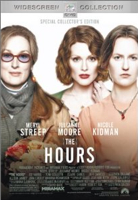 The Hours
The Hours is based on Michael Cunningham’s novel
about depression in the lives of three women. Their interwoven stories take place on the same day of the month but in years separated by decades. All the stories are linked by reference to Virginia Woolf’s novel, Mrs. Dalloway
. That story also takes place within a day and contrasts, as do the lives of Cunningham’s characters, a conventional and prosperous social life with the inner drive of suicidal depression.
The film begins and ends with scenes of Virginia Woolf’s (Nicole Kidman) suicide in 1941, but the greater part of her story takes place on a day in 1923 when she is beginning to write Mrs. Dalloway. She lives in fear of the return of the suicidal depression that has caused earlier breakdowns. Her life, however, has become constrained by her overly watchful servants and husband who want to be nearby at all times. After an emotionally turbulent visit from her sister, she tries to flee by train to London, but her husband brings her home. While he dreads the possibility of recurring illness, she comes to see that she has to accept the identity she has rather than live in fear. Tragically, that resolve was not enough to save her.
Laura Brown, played by Julianne Moore, is a housewife in a prosperous suburban family of 1951. She has become emotionally hollowed out and can barely handle the preparations for her young son Richard’s birthday. After a disastrous effort to bake a cake, she leaves him in the care of a friend and goes off to do an errand. The boy senses something is terribly wrong, and, in fact, Laura checks into a hotel, planning to kill herself with sleeping pills. She abandons the attempt after a frightening dream and returns home to the birthday party. We learn later that she leaves her family after the birth of her second child as the only way she can think of to preserve her sanity. This is a powerful portrait of deep emotional turmoil buried under the code of silence about mental illness that prevailed in the 1950s.
A 2001 day in the life of Clarissa (Meryl Streep) brings back Laura’s son Richard (Ed Harris) as an adult. He is debilitated by AIDS and is now suicidally depressed. Richard refers to Clarissa as a Mrs. Dalloway sort of character, the always busy and perfect social organizer. On this day, she is arranging the details of his birthday celebration. It’s an attempt to revive his spirits, but he ends his life before the party can even start.
The acting and skillful interweaving of the three stories make this a quietly devastating portrait of depression as a silent killer and a force that affects everyone close to a person suffering from the illness.
Revolutionary Road
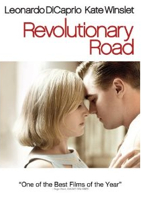 Revolutionary Road
Revolutionary Road. Most reviews of this film, based on Richard Yates’ Revolutionary Road
, describe it as a commentary on the stifling social roles of suburban life in the 1950s, but that’s only one dimension of this powerful story.
Frank and April Wheeler (Leonardo diCaprio and Kate Winslet) start their married life full of excitement and the promise of Frank’s ambition to be a writer. But Frank winds up with a successful marketing career in New York, after dodging his commitment to April to live the writer’s life in Paris. The couple move to a prosperous suburb where April begins to sink into depression.
It’s true that the conventional role of housewife and mother limits her life, but that’s no explanation for the seriousness of her illness. Her emotions are cancelled, her children don’t reach her, and Frank is shut out as well. April makes love awkwardly with a neighbor who is obsessed with her, but she can’t feel enough to start a relationship.
Finally, her days become mechanical exercises. One morning she carefully organizes her suicide to preserve the orderliness of the house. It’s as if she is sure that her physical disappearance would hardly be noticed.
Many of the characters, in fact, put her right out of their minds, as if she had been an embarrassing anomaly. The neighbor who wanted her in his life is the exception. He continues to obsess about her and can’t stop talking about what she was like and the shock of her death.
All these films depict depression’s impact in a way that goes beyond most discussions of the illness. Many books and documentaries present it as an intensely private affliction, but its effects are much more widespread. Depression becomes a dominant force in the lives of everyone related to the ill person. Perhaps it takes the dramatic impact of a movie to make that clear.
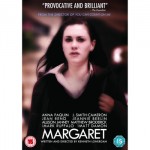


Great post,
Some depression is often overlooked,
depression can really kill slowly.
These movies shed mores light about this silent killer.
There’s an Irish film called Davin that deals with the aftermath of a guy’s suicide, through his mates and family
https://www.youtube.com/watch?v=LtElIIJ1YuI
Girl, Interrupted (1999) HELLOO
Obsessive Compulsive Hoarder (2011) (TV Movie)
OC87:The Obsessive Compulsive, Major Depression, Bipolar, Asperger’s Movie (2010)
Obsessive Compulsive Cleaners (2013) (TV Series)
what about “Silver Linings Playbook”? it’s an excellent film about depression and how one needs family & friends support.
Silver Linings Playbook was based on Bi-polar Disorder, not depression.
Actually Bipolar is a type of depression. Depression can either be categorised as unipolar (depression) and bipolar (depression and mania).
All your movies about depression a centered around White American female characters.
How about expanding your list to include men(!) and people from different ethnic and socioeconomic backgrounds and religions too.
I appreciate this comment and would like to see a response to it.
There are three other posts that discuss movies about men as well as children with depression: 5 Comedies about Depression, 7 More Movies about Depression and Top 10 Movies on Depression and Bipolar. Most of the characters played by Paul Giamatti and Woody Allen are depressives, as are many of those created by Kevin Spacey. Also look at a Lifetime Network movie called, Call Me Crazy, and the classic comedy Groundhog Day. The world of movies, however, is pretty white and middle class, even after all these years of activism for diversity. Perfect is a great film about a young African American woman living in New York’s Harlem neighborhood, and La Sirga (available from Film Movement) concerns a traumatized young woman in an unnamed Central American country during a time of civil war. I hope to add a page about movies before long that will expand and round out the list.
John
I sincerely do not like the idea of depressed people being referred to as depressives (speaking as a clinically depressed person). It is a word…. as are “gays” and “blacks” but when these words are used as nouns it comes across as pejorative.
Archie’s final project is about both a girl and boy who are depressed
‘the perks of being a wall flower’ is what you’re looking for
Yup, I was thinking the same thing.
I just found this article. Im depressed myself. I am 20 and hate That i dont live the liFe i want…. only these movies ease the pain. If anybody wants to email write me to imjustme@hotmail..nl
X
All blacks don’t cry is a short film and great book about a guy fron new Zealand called John kirwan , it’s a great read
most films with isabelle huppert also give a good and a different look on depression. i would recommend “the paino teacher” “villa amalia” “the lacemaker”, etc
Black Butterflies is a great movie that portrays depression. Also, Frances is a good movie that shows depression along with psychiatric care. Others include: Wilbur Wants to Kill Himself, Mr Nobody, A Single Man, and Bright Star.
I’d recommend the 2011 movie Melancholia with Kirsten Dunst by Lars von Trier. Its the best portrayal of depression I’ve ever seen on film.
Hi, CalRib –
Thank you – Yes, it’s a great film that I had been waiting to see ever since hearing about its release. I finally got to see it about a month ago – I’ll do an update post soon on movies.
John
Thank you for writing about these important movies – I will check them out.
In reading a different comment, I was thinking about how watching movies on the topic can sometimes trigger/worsen one’s own depression!
One thing that has been helping me and my boyfriend get through some (mild-moderate) depressive times is just watching good comedy – and when I say ‘good’, I mean intelligent enough to give the depressed mind a bit of a break.
I recognize that the masking / escapist nature of this is not always a ‘cure’, but in my experience, part of the act of choosing funny (or uplifting) movies is about choosing to laugh, which is healing in itself. Recognizing that certain music or movies might trigger depression has been a big thing for me.
It would be interesting to provide a list of funny or uplifting movies too – GOOD ones, that people can really get into and relate to. 🙂
Hi, Renee –
It is a good idea to watch the funniest movies you can find as well as the true to life but heavy ones that go straight into depression. I’ve just done a post on comedies about depression, but we should put together a list of movies of whatever sort that have helped us laugh the hardest and feel the best about living. Laughing is strong therapy, without a doubt. Which comedies do you like?
John
i was going to recommend helen. it really is the most honest movie i’ve seen regarding depression.
Hi, Lauren –
Helen is unique among the films I’ve seen in giving you an honest version of depression without sacrificing the dramatic impact of a good film. I’m working on building a list for another post, so let me know if you have other suggestions.
Thanks for commenting.
John
Well, you have a pretty good collection. Depression? Tough to overcome and surely I’m gonna be amaze on how these movies going to portray them specially the Revolutionary Road. I can’t forget this story.
Hi, vhien –
I’ll be interested to hear your reactions to these films. Can you add others to the list?
Thanks for coming by
John
i watched some of these movies before. without having gone through depression myself then, i didn’t realize what depression was even when portrayed in the films. now watching them again elicits a different empathy
noch
Hi, noch –
I never realized how many films portray characters with depression until I started looking for lists and thinking about what I’d already seen. These five are just the start – I’ve found 15 so far. Any suggestions?
John
John, thanks for the list. I have seen “The Hours” and “Revolutionary Road” and they were very accurate – it was hard not to get depressed myself watching them, it was so real. Especially in the latter movie, I was watching Kate Winslet gradually becoming more and more removed and thinking, “I get it, I get it.” I feel torn sometimes between wanting to watch movies like these to validate my own experiences, and not wanting to subject myself to something that leaves me feeling badly. It’s no wonder, when you think about it, that people who aren’t depressed don’t really want to hear about it from someone who is – WE know what it’s like and it’s depressing to US to hear about it. And yet, what we need is for others in our lives to understand what it’s like, how it’s not a simple matter of getting your butt off the couch and doing something constructive. We need them to know that this is not the entirety of who we are, that somewhere deep down we still care about others but just can’t feel it right now. I also think there may be, for a lot of people, a need to feel forgiven for being depressed, even though we know, in the light of day, that it’s not our fault. It’s a terrible feeling to know that my illness can so strongly impact the people in my life, in my family. I feel isolated but don’t live in isolation, so it’s like a contagious poisoning of those around me, even though that’s not what I want to happen.